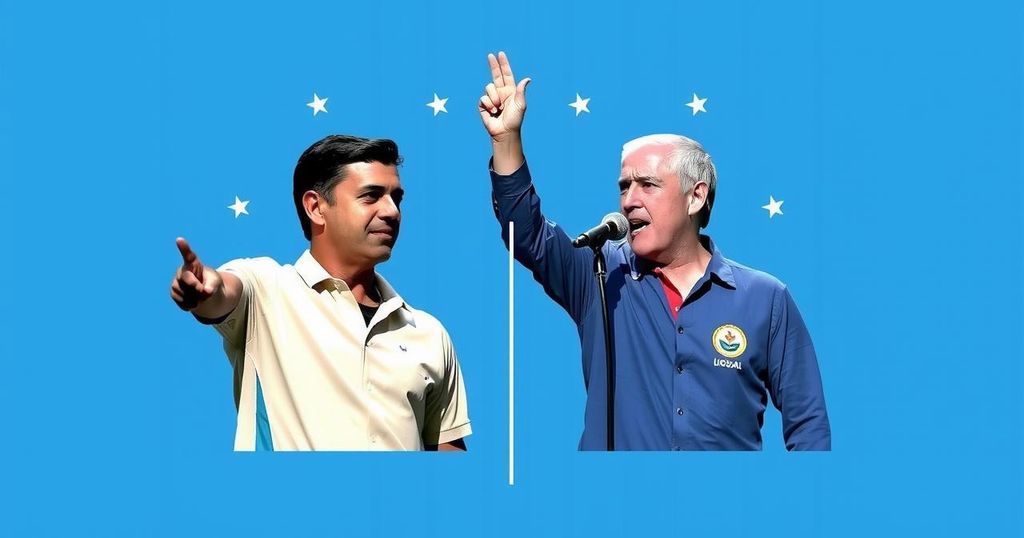Uruguay is set for a runoff presidential election, with closely matched candidates Álvaro Delgado and Yamandú Orsi following an inconclusive first round. Orsi’s Broad Front leads in initial voting, but support for other conservative parties bolsters Delgado. Apathy among voters and rising crime concerns complicate the electoral landscape.
Uruguay is preparing for a significant electoral event as citizens head to the polls for a second round of presidential elections, following an inconclusive initial vote. The contest has intensified into a tightly contested race between Álvaro Delgado of the governing National Party and Yamandú Orsi from the left-leaning Broad Front coalition. In the initial round, Orsi’s coalition garnered 44 percent of the votes, while Delgado’s party received 27 percent, with the remaining votes supporting other conservative parties in the coalition, particularly the Colorado Party, which collectively amassed 20 percent. This dynamic provides Delgado with a potential advantage leading into the runoff election.
The recent electoral cycle has seen both candidates face challenges, notably the increasing rate of violent crime in Uruguay, a nation previously celebrated for its stability and safety. Despite the gravity of these issues, voter engagement has declined, as evidenced by nearly ten percent of voters still undecided. Interviewed analysts have noted that the race’s lack of fervent anti-establishment sentiment reflects a more serene political environment in Uruguay compared to the populist waves seen elsewhere, such as in the United States.
Economic discussions surrounding taxation and social spending have dominated the candidates’ platforms, indicating a shared agreement on fundamental issues. This relative consensus may contribute to voter apathy and uncertainty, starkly contrasting the contentious narratives observed in other electoral processes across the globe. Notably, Nicolás Saldías remarked, “The question of whether Frente Amplio (the Broad Front) raises taxes is not an existential question,” underscoring the unique political atmosphere in Uruguay.
In recent years, Uruguay has experienced a political shift, transitioning from an era dominated by the leftist Broad Front, which oversaw the legalization of key social policies such as abortion and same-sex marriage, to a more conservative governance led by President Luis Lacalle Pou. The current electoral contest features Álvaro Delgado, representing the National Party, and Yamandú Orsi from the Broad Front, reflecting a stark contrast in political ideologies. Given the political context and the fragmented support among conservative factions, the outcome of this runoff election is highly consequential for the future direction of Uruguay.
As Uruguay approaches the presidential runoff election, the intense competition between Álvaro Delgado and Yamandú Orsi signifies a critical juncture for the country. With voter indecision prevalent amidst rising crime concerns and economic discussions, the candidates will need to galvanize support to secure victory. The outcome will reflect not only the immediate political landscape but also the broader sentiments and priorities of the Uruguayan electorate moving forward.
Original Source: www.scmp.com







